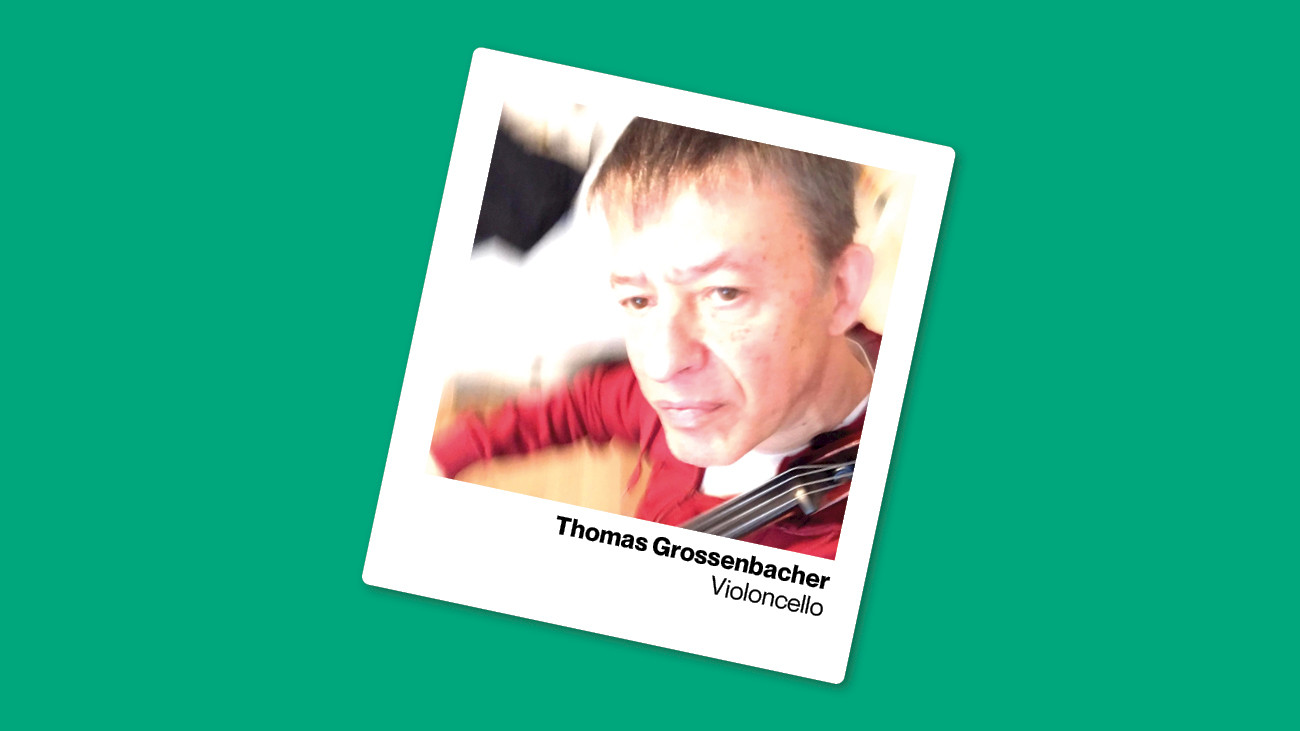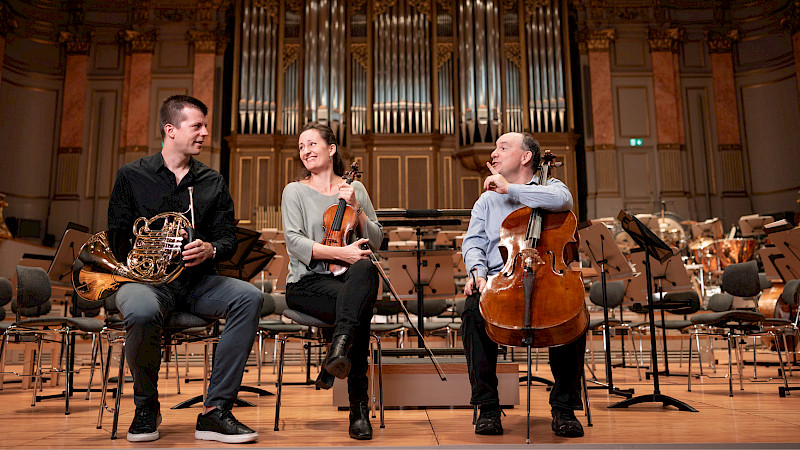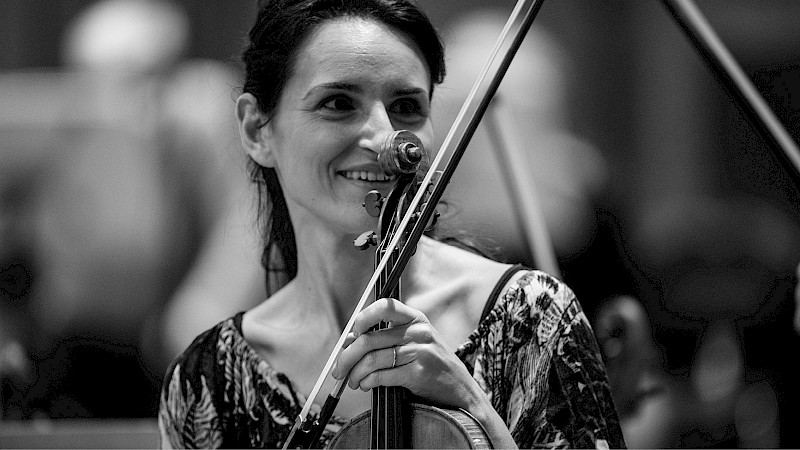
When he plays, he shines
Thomas Grossenbacher has been principal cellist in the Tonhalle-Orchester Zürich for more than 26 years. Now he says goodbye, moves on and looks forward to seeing his audience again.
Scale up, scale down. Triads slow, faster, very fast, as fast as possible. Thomas Grossenbacher is sitting in one of the practice rooms above the Tonhalle Maag and is bowing his cello. He took the bus at half past six in Tagelswangen, then the S3, arrived before his colleagues do in order to be able to perform his ritual. Intonation, vibrato. «Before the noise of the day begins,» he says. The morning is a pure, clean time.
«Nothing comes from nothing, especially on a string instrument,» he says. Exceptional talents who live off their gifts and have to do little for their skills do exist, he says, but «if you listen carefully, you can sometimes recognize skill rather than substance in this kind of skill». He's not interested in that kind of music-making. «It only gives meaning to life when you demand the best of yourself, when you really demand it.» He thinks about it and then says, «Maybe it's a matter of education.»
Growing up with refugee children
In his case, education was the responsibility of his father, a preacher of a Chrischona congregation. Thomas Grossenbacher grew up in the environment of a Protestant free church, in the Bible and recreation home in Männedorf. His mother was also responsible for his upbringing: She raised four refugee children from Cambodia in addition to his three older siblings. She played music with the family and encouraged her youngest son to play the cello at the age of ten: after all, there was already a sister and a brother playing the violin alongside her at the piano.
Three lessons with the then solo cellist of the Tonhalle-Orchester Zürich were enough, and Thomas Grossenbacher knew that he wanted to become a musician, that's how charismatic Tatjana Valleise had been. «All my teachers were fantastic and just the right ones at the right time». All of them sounding names: in Zurich they were Mischa Frey and Claude Starck, in Lübeck David Geringas.
At the age of 24, he ran out of scholarship money. Time for an audition with the former NDR Symphony Orchestra in Hamburg (now the NDR Elbphilharmonie Orchester), where he earned a tutti position and three years later the second solo position.
When he heard of his predecessor's retirement in Zurich, he set about preparing for the application procedure and was promptly chosen as solo cellist: «A miracle,» he says modestly.
Celloyoga despite corona
Posture and rituals are as important to Thomas Grossenbacher in teaching today as a healthy self-confidence, especially since modesty on stage does not help. He also practices all this himself at his «Celloyoga», as he describes the daily practice routine for his students as the twenty minutes or so that he needs to connect his person with the instrument.
But usually Thomas Grossenbacher's day does not run smoothly either, he too has to move his practice rituals into the four walls, especially since this coronavirus goes around the world and paralyses life around him. This hits him exactly at the time when he wants to say goodbye to his audience and the orchestra with which he has played for over a quarter of a century. Now concerts are coming up, which he is particularly looking forward to: the semi-staged Fidelio first and foremost, and once again Beethoven, who is his favourite of all when it comes to orchestral music. He hopes to be able to bid a musical farewell to Paavo Järvi and the musicians, despite the coronavirus.
Even more intimate, even more intense
«Where is he going,» ask the people who have watched him on stage for years, how he seems to ignore everything around him, how he is in conversation with his surroundings without words, and how he shines when he plays. Even the music critics have heard it and the domestic workers, and they all ask the same questions: «Has he had enough of the orchestra? He hardly can have any problems with his colleagues? He'll just keep playing, won't he?» Some say that it hits the orchestra in the soul when Thomas Grossenbacher leaves.
When he hears this, he laughs. He's not leaving because of the orchestra. On the contrary. He loves it in all ways, humanly and musically, at most he wants to intensify the music-making even more, to put it in an even more dialogical, even more intimate way when playing in smaller groups: In a full-time position as cello and chamber music teacher at the Zürcher Hochschule der Künste, where he already teaches eleven young people and trains them in his SaltoCello formation. When, if not now, as a teacher colleague retires and Grossenbacher still has ten years of work ahead of him? To focus on teaching, when the next generation is so important to him. To work even more concentrated, to cultivate conversation in rehearsals, as is hardly possible in an orchestra, which is the nature of a large, complicated organ. Being quiet in small formations. «I want to be free. Also free from as much of life's noise as possible.»
Melanie Kollbrunner





